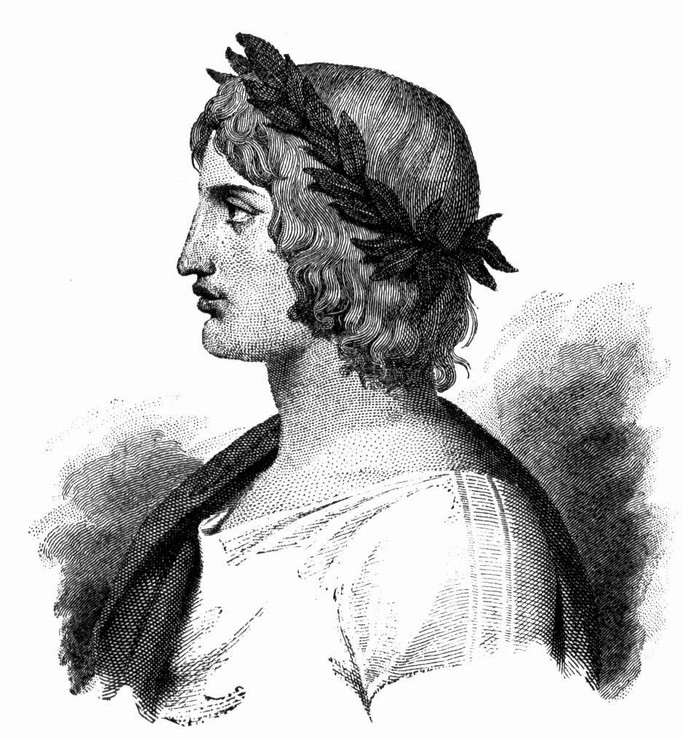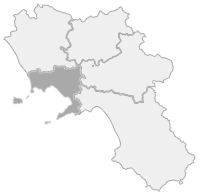Rome’s greatest poet, the singer of his legendary origins, Publius Vergilius Maro was born near Mantua on the 15th of October 70 b.C., son of a small landowner. Even in his youth, he went to Naples for the first time in order to attend the philosophy school, even before moving to Rome in order to complete the course with the rhetoric studies.
In 42 b.C., during a diff icult stage of his life which brought him back to philosophy studies, he went back to the Parthenope city, where Philodemus of Gadara and his disciple Siro introduced Epicureanism. In Naples, between 42 and 39 b.C., the poet dedicated himself to the composition of the Bucolics.
icult stage of his life which brought him back to philosophy studies, he went back to the Parthenope city, where Philodemus of Gadara and his disciple Siro introduced Epicureanism. In Naples, between 42 and 39 b.C., the poet dedicated himself to the composition of the Bucolics.
His stay in Naples has been determining even for his second poem, the Georgics, which needed seven years of work from 37 to 30 b.C., whereas his greatest book, the Aeneid saw the light in Naples and Rome between 29 and 19 b.C,. As a great friend of Maecenas, Virgil frequented him assiduously in Rome as well as in his properties in Campania, in the area of Atella. Maecenas introduced him to Augustus, of whom Virgil became a great supporter, putting his art at the service of the growing empire.
As a friend, according to the the medieval biographers, it was apparently Virgil who advised the emperor to build a big aqueduct in order to bring water from Serino to Naples and to Pozzuoli and Baia. In the same way he might have suggested other public books for the benefit of the places he loved and which also had an important role in the poetic inspiration and in the Aeneid, to which he was still working in the year 19 b.C. when, after having returned from a trip to Greece, he died in Brindisi on the 21st of September. He has been buried in Naples, in the Parco Virgiliano of Fuorigrotta, where you can still visit Virgil’s tomb.



Comments powered by CComment